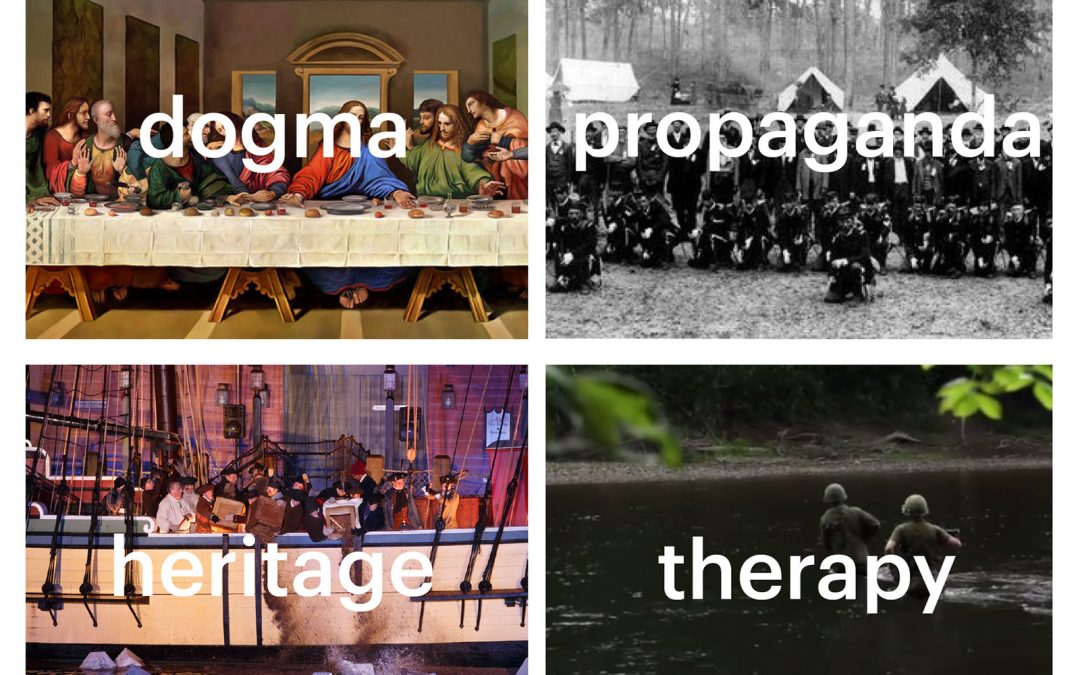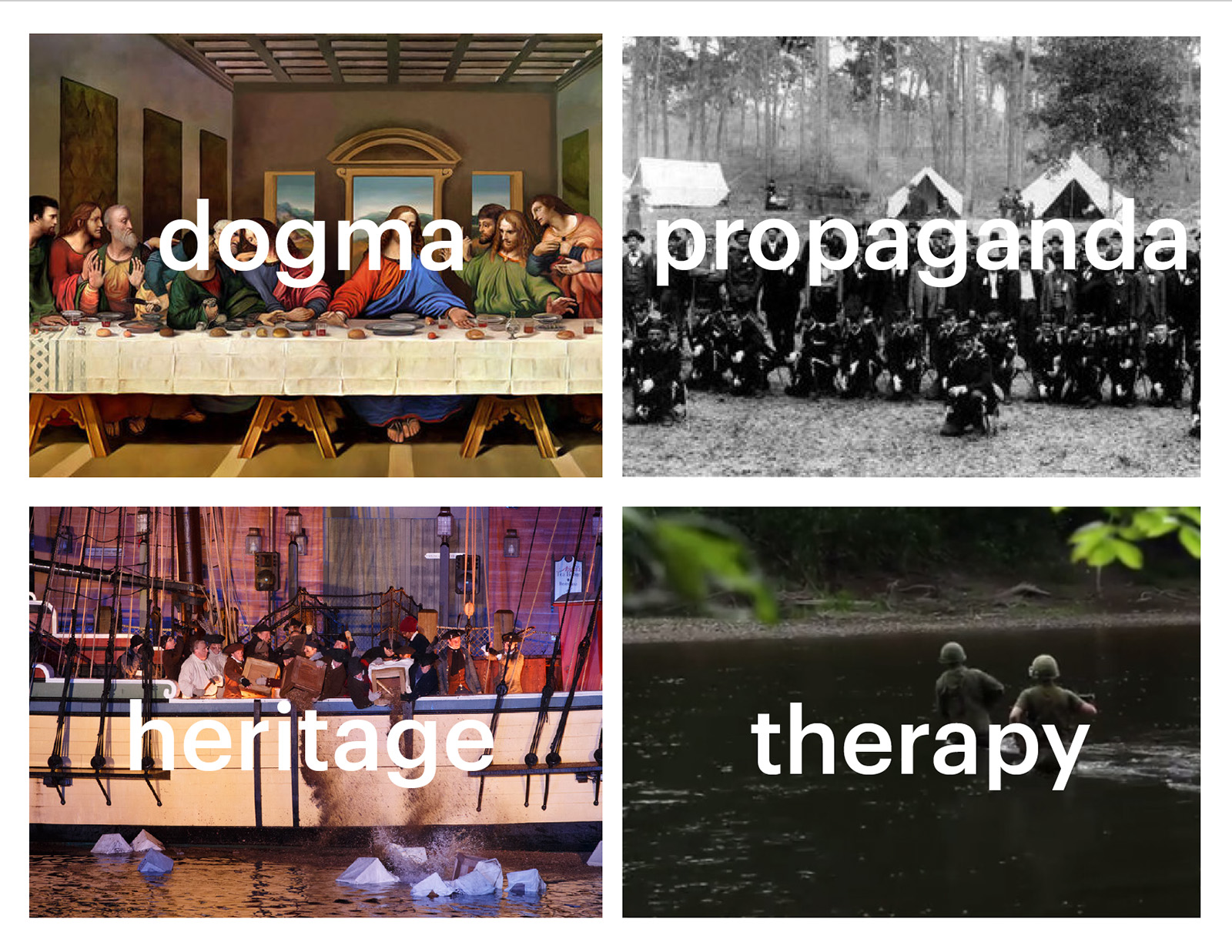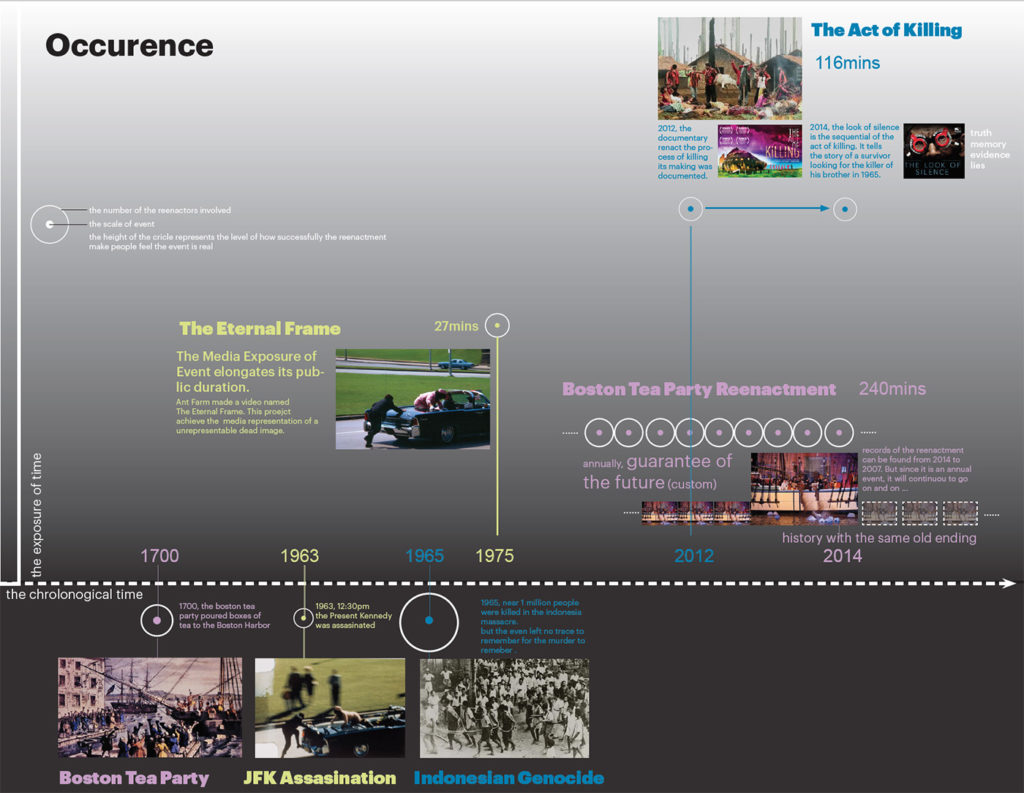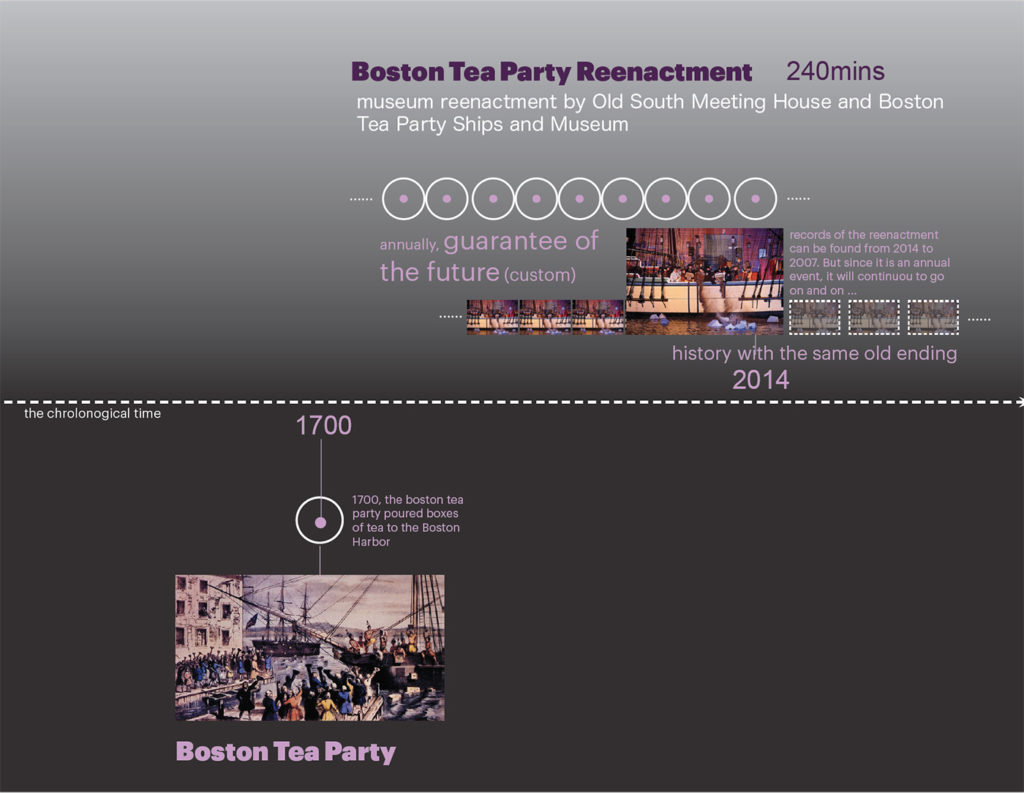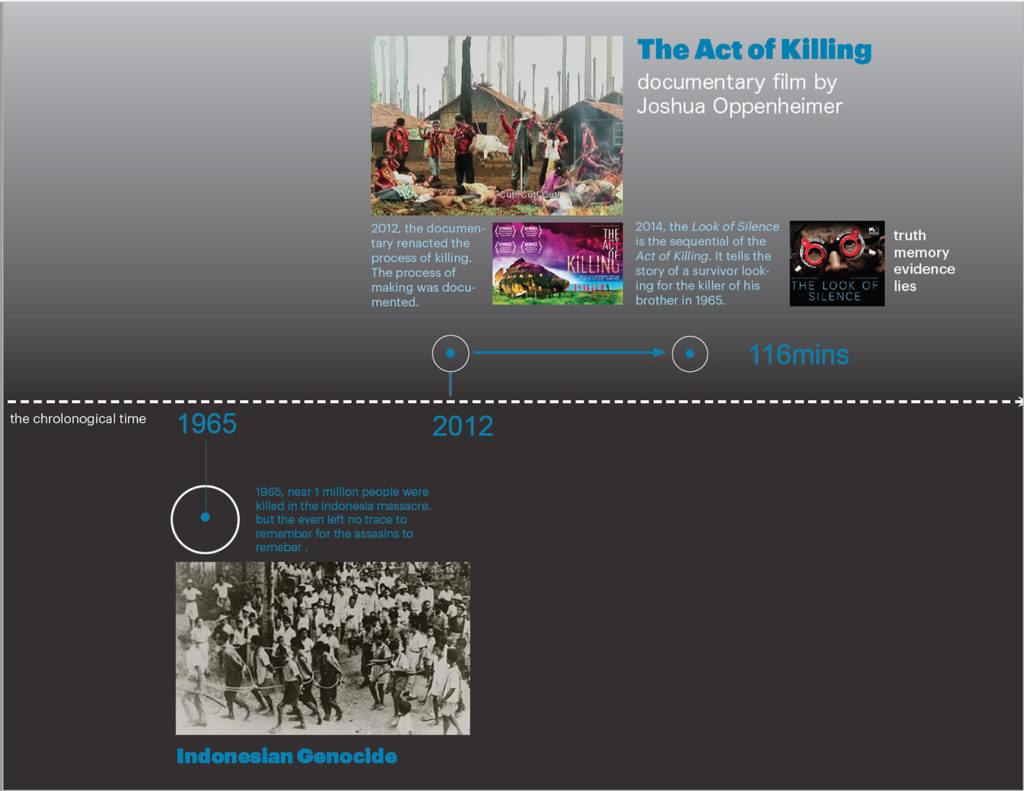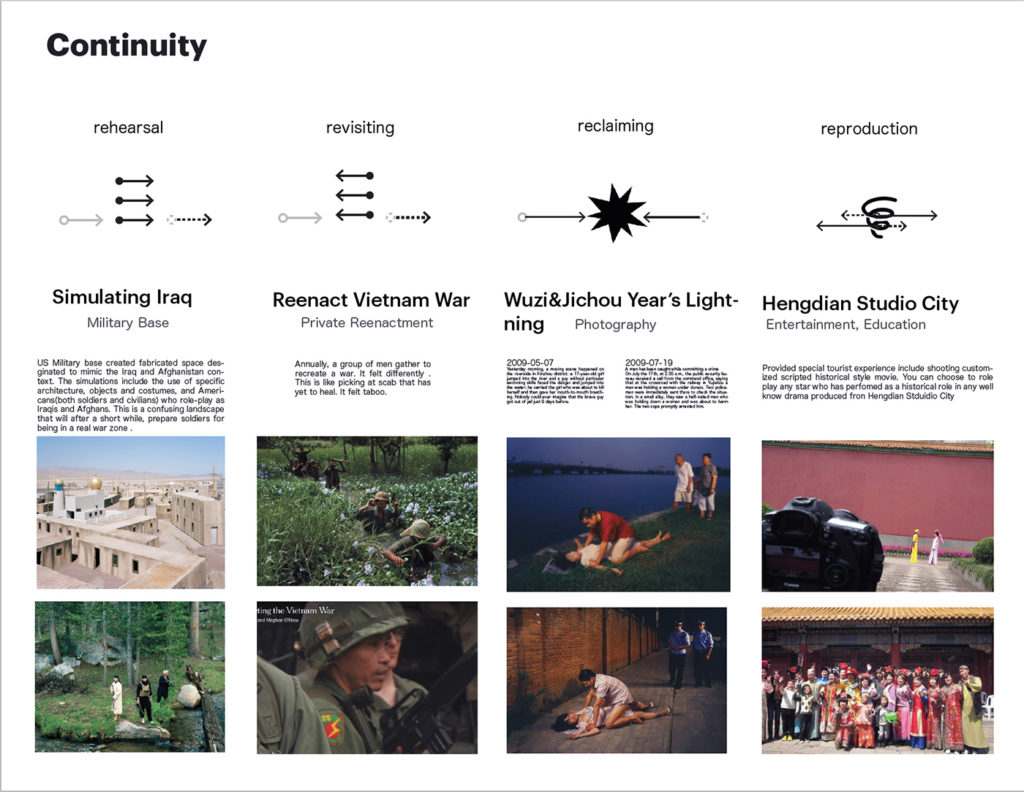Qinqin Wu (MDes CC ’15) explored reenactment through her thesis in Critical Conservation.
Contemporary types of reenactments challenge the prevalent view that conservation is primarily about an event like a monument, or any object. Reenactment asserts that the conservation of any history is grounded through a narrative which embodies a play of power and identity.
Historical reenactment has long existed—from the Christian church’s communion re-enacting the Last Supper to Boston’s Tea Party. New forms of reenactment appear at a time when the uncritical preservation of place fails to function to preserve any “authentic” memories of place, or the identities of groups. Reenactment is a symptom of this failure.
My thesis is that historical reenactment can serve as a variable alternative to the present static form of preservation but like preservation, historical reenactments as a form of conservation will also reinforce identities and distribute power. In my thesis research I have discovered other modes of reenactment beyond the traditional historical modes and have organized them according to four driving parameters of 1.) time, 2.) spectatorship, 3.) stimulation, and 4.) continuity. Learning from the reenactment cases in the emerging fields of theater, film, TV production, museum, and new media technology, conservation must seek to create a challenging way of storytelling which embraces unpredictability, multiple points of view and the role of memory to identify thereby offering an even more complex interpretation of history in the future.

